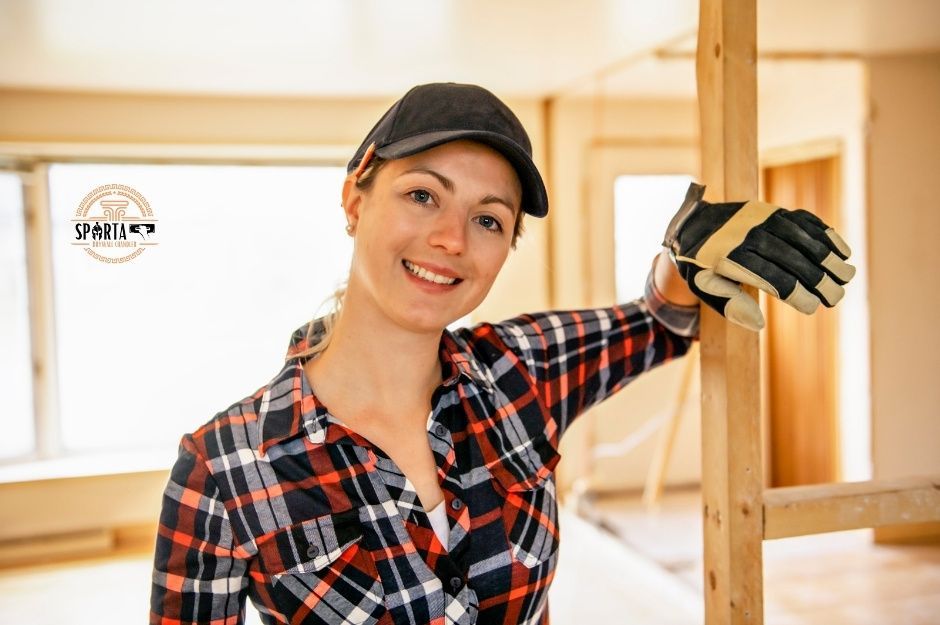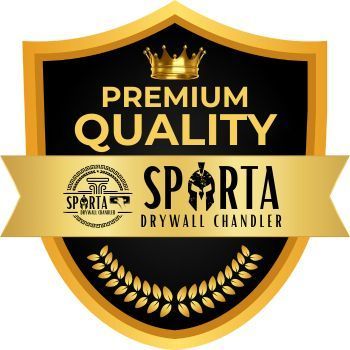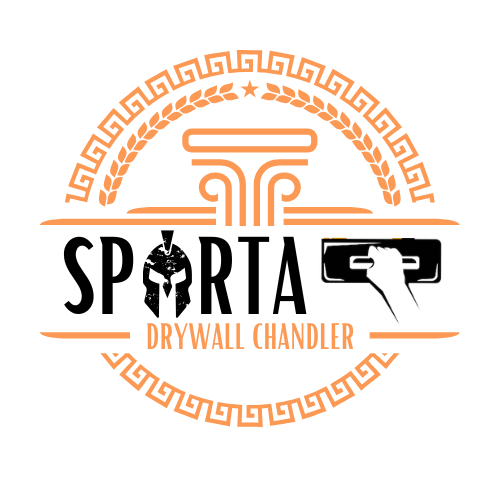Drywall Repair Maricopa
High-quality Sheetrock Repair Company in Maricopa, Arizona

Dealing with damaged drywall in your Maricopa home can be frustrating, but professional repair services at Sparta Drywall Chandler are readily available to restore your walls and ceilings. Local drywall specialists in Maricopa, Arizona offer comprehensive solutions including patch repairs, crack fixes, popcorn ceiling restoration, corner bead installation, joint repairs, and water damage remediation.

Sparta Drywall Chandler

Licensed contractors in Maricopa County bring decades of experience to every project, ensuring seamless repairs that match your existing wall textures perfectly. With Maricopa County being Arizona's most populous county at over 4.4 million residents, the demand for quality drywall services has led to a competitive market with highly skilled professionals. From small patch jobs to complete drywall installations, these experts use modern equipment and proven techniques to deliver lasting results.
Your walls deserve professional attention, and Maricopa's drywall contractors provide both installation and finishing services to maintain your home's aesthetic appeal. Many local companies offer quick response times and competitive pricing, serving not only Maricopa but also nearby communities like Phoenix (the county seat), Mesa, Chandler, and Scottsdale. The city's rapid growth as part of the Phoenix metropolitan area has created numerous opportunities for both residential and commercial drywall projects.
Drywall Repair Services in Maricopa, Arizona
Professional drywall repair services in Maricopa address common issues like holes, cracks, water damage, and texture problems. Arizona's extreme temperature fluctuations—from scorching summers exceeding 115°F to cooler winter nights—can cause unique drywall challenges including expansion and contraction damage. Local contractors provide targeted solutions with competitive pricing starting at $60 for basic repairs.
Patching Holes and Wall Damage
Small hole repairs typically cost between $60-$200 in Maricopa, while larger holes run $50-$75 per square foot. Professional contractors can patch damage from door knobs, furniture impacts, and anchor holes.
Your repair specialist will cut around the damaged area, install a backing support, and apply new drywall material. They'll then tape and mud the seams to create a seamless finish.
For nail holes and minor dents, technicians use specialized joint compound or spackle to fill the damage. The repaired area is sanded smooth and textured to match your existing wall surface. Desert dust infiltration, common in Maricopa due to its location in the Sonoran Desert region, can affect repair materials, so contractors often use dust-resistant primers and sealers.
Crack and Seam Repair
Drywall cracks often appear at seams or corners due to settling or temperature changes. Maricopa's expansive clay soil conditions, similar to much of Maricopa County's 9,224 square miles, can cause foundation movement that leads to wall cracks. Local repair costs range from $60-$400 depending on crack severity and length.
Technicians will assess whether the crack is superficial or structural. They'll clean the area, apply joint tape, and cover it with compound in multiple layers.
Corner bead repairs restore damaged wall edges and protect against future wear. Your contractor will remove damaged sections, install new corner beads, and blend the repair with surrounding walls.
Water Damage Restoration
Water-damaged drywall requires immediate attention to prevent mold growth. While Maricopa receives only about 8 inches of rainfall annually, flash flooding from monsoon storms can cause significant water damage, especially in areas near the Gila River Indian Community to the south. Contractors first identify and fix the water source before beginning repairs.
The process includes removing wet materials, drying the area thoroughly, and treating for potential mold. New moisture-resistant drywall may be recommended for areas prone to water exposure.
Professional teams can match existing textures and paint to ensure your repaired section blends perfectly with surrounding walls. Given Arizona's low humidity levels, drying times for repairs are typically faster than in other regions, allowing for quicker project completion.
Ceiling and Popcorn Texture Repairs
Ceiling repairs address everything from small cracks to large water damage patches. Your contractor will stabilize the damaged area and ensure proper support before making repairs.
Popcorn ceiling fixes require careful matching of the original texture. Professionals use specialized tools and materials to recreate the distinctive finish. Many Maricopa homes built during the area's development boom in the 1990s and 2000s feature popcorn ceilings, making this a common repair request.
For smooth ceilings, technicians focus on achieving a perfectly level surface. They apply multiple thin coats of compound, sand between layers, and finish with careful texturing to match adjacent areas.
Drywall Installation Solutions
Professional drywall installation requires careful planning, proper materials, and expert execution to create sturdy, long-lasting walls and ceilings. Licensed contractors in Maricopa must comply with Arizona's Registrar of Contractors (ROC) requirements and understand local building codes specific to desert climate construction. Licensed contractors in Maricopa bring specialized tools and techniques to deliver quality results.
Residential and Commercial Installations
Maricopa drywall contractors handle both residential and commercial projects with precision-focused approaches for each setting. With Maricopa being strategically located along major transportation corridors including Interstate 10 and State Route 347, commercial development has increased significantly, creating demand for both types of installations. Your home installation needs differ from commercial spaces in terms of panel sizes and finish requirements.
Professional teams typically complete residential installations within 3-5 days for average-sized homes. Commercial projects follow strict timelines based on square footage and complexity.
Licensed drywall companies coordinate with other trades to ensure proper installation around electrical, plumbing, and HVAC systems. They maintain clean work areas and protect surrounding surfaces during installation. Arizona's strict energy efficiency codes require careful attention to insulation and vapor barriers during drywall installation.
Material Selection and Code Compliance
You'll need to select appropriate drywall thickness based on your specific application:
- 1/2 inch for standard walls
- 5/8 inch for fire-rated requirements
- Moisture-resistant panels for bathrooms
- Sound-dampening options for media rooms
Local building codes in Maricopa require specific fire ratings for certain areas, particularly important given Arizona's high wildfire risk, especially during dry periods when areas like the nearby Tonto National Forest are under fire restrictions. Professional contractors ensure all materials meet these requirements.
Quality drywall professionals source materials from reputable suppliers to guarantee durability and performance. They check each panel for damage before installation. UV-resistant and temperature-stable materials are often recommended due to Arizona's intense sun exposure and heat.
Preparation and Framing for New Drywall
Your installation starts with thorough wall cavity inspection and preparation. Drywall contractors verify stud spacing meets local codes - typically 16 inches on center.
Essential preparation steps include:
- Removing old materials completely
- Installing proper insulation
- Checking electrical box placement
- Verifying framing is plumb and level
Professional teams install blocking where needed for heavy fixtures or cabinet mounting. They ensure proper backing for corner bead installation and around window/door openings. Desert climate considerations include ensuring adequate ventilation and using materials that can withstand Maricopa's extreme temperature variations.
Metal framing requires special fasteners and techniques compared to wood studs. Experienced installers adapt their methods accordingly.
Finishing and Enhancements
Professional drywall finishing transforms raw walls into smooth, attractive surfaces ready for paint or other decorative treatments. In Maricopa's arid climate with humidity levels often below 20%, joint compound dries quickly, requiring contractors to work efficiently and use specialized slow-drying compounds when needed. Skilled application of joint compound, proper taping methods, and texture matching create seamless results.
Taping and Mudding Techniques
Start by applying paper or mesh tape over seams and joints. Paper tape works best for flat joints, while mesh tape provides extra strength for inside corners.
Apply three coats of joint compound, allowing each layer to dry completely. The first coat embeds the tape, the second builds up the joint, and the third creates a smooth finish.
Use increasingly wider drywall knives for each coat - 6 inches for the first, 8 inches for the second, and 12 inches for the final coat. This method feathers the edges properly.
Sand between coats with 150-grit sandpaper to remove ridges and bumps. For the final sanding, use 220-grit to achieve an ultra-smooth surface. Desert contractors often recommend dust collection systems during sanding to prevent contamination from Maricopa's naturally dusty environment.
Corner Bead and Joint Refinement
Install metal or vinyl corner bead to protect and straighten outside corners. Secure it with drywall screws every 8-12 inches.
Apply three thin coats of joint compound over corner bead. Each coat should extend 2 inches further than the previous one to create an imperceptible transition.
Use a corner tool to ensure crisp, clean angles on inside corners. This specialized tool helps achieve professional-grade results.
Check all joints with a straight edge to verify flatness. Any high spots or dips will be visible after painting.
Surface Texture and Finishing Options
Choose from popular texture styles:
- Orange peel: Light, subtle texture
- Knockdown: Flattened peaks creating a casual look
- Skip trowel: Mediterranean-style pattern
- Smooth finish: Modern, clean appearance
Southwestern and desert-themed textures are particularly popular in Maricopa, reflecting the area's connection to the broader Sonoran Desert region. Match existing textures using specialized tools like texture sprayers or rollers. Test the pattern on a scrap piece first.
Prime all finished surfaces before painting. This step seals the joint compound and ensures even paint absorption.
For water-resistant areas, consider using moisture-resistant joint compound and primer specifically designed for high-humidity environments.
Choosing the Right Drywall Contractor in Maricopa
Selecting a qualified drywall contractor requires careful consideration of their credentials, local experience, and ability to provide detailed project estimates. The right professional will possess proper Arizona ROC licensing, insurance coverage, and a proven track record serving Maricopa County's diverse communities, from rural desert areas to established neighborhoods near Luke Air Force Base. The right professional will possess proper licensing, insurance coverage, and a proven track record in the Maricopa area.
Licensing and Insurance Considerations
Every drywall contractor in Maricopa must hold a valid license from the Arizona Registrar of Contractors. Ask to see their ROC number and verify it through the state database.
Insurance protection is essential - verify that your contractor carries both liability insurance and workers' compensation coverage. This safeguards you from potential liability during the project.
Professional drywall companies should readily provide documentation of their credentials. Legitimate contractors will maintain active bonds as required by Arizona state law.
Evaluating Local Experience and Reviews
Check Better Business Bureau ratings and accreditation status for Maricopa drywall professionals. The BBB provides valuable insights into company reliability and complaint history.
Read customer reviews on trusted platforms like Yelp and Angi. Pay special attention to reviews mentioning specific drywall repairs similar to your project needs.
Look for contractors with extensive experience in the Maricopa area and familiarity with nearby communities like Ahwatukee, Laveen, and areas served by Phoenix Sky Harbor International Airport (PHX). Local professionals understand regional building codes and common drywall issues specific to Arizona's climate.
Understanding Estimates and Project Scope
Request detailed written estimates that break down labor costs, materials, and timeframes. Reputable contractors will specify the types of materials they plan to use.
Your estimate should clearly outline the project phases, from preparation to clean-up. Make sure it addresses specific repair techniques and finishing methods.
Compare multiple quotes from different drywall repair contractors, keeping in mind that Maricopa County's size (larger than four entire U.S. states) means travel costs and material delivery may vary significantly between contractors. Be wary of estimates that seem unusually low or lack detail - these often indicate potential quality issues.
Discuss payment terms and schedules before work begins, and consider that projects may need to be scheduled around Arizona's extreme summer heat when outdoor temperatures can affect indoor working conditions. Professional drywall companies typically require a reasonable deposit with balanced payments tied to project milestones.


